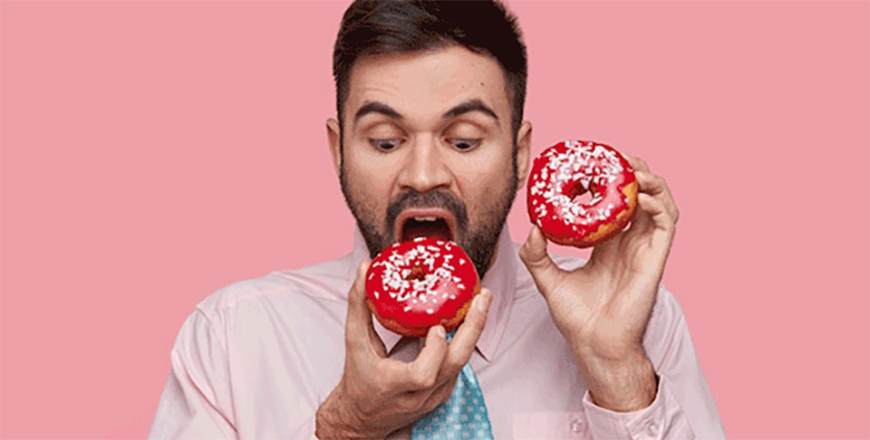You are here
Our Shadow
By Nathalie Khalaf , Family Flavours - Feb 18,2024 - Last updated at Feb 19,2024

Photo courtusy of Family Flavours magazine
By Nathalie Khalaf,
Holistic Counsellor
Our shadow: that part of us of which we are unaware. The part of us we are alienated from since very early on in childhood, which hides all we do not want to be associated with.
Our shadow may consist of various human needs such as sex, survival, love, aggression, life, death, will, power, security, acceptance and growth.
Disconnecting from the self
Some studies indicate that some people create images and beliefs and disconnect from parts of themselves. They turn into their “shadow” and that’s how neurosis and mental illnesses emerge.
Mirror of the other
In other words, the shadow is that part of us we are disconnected from.
We notice it in others when we dislike them and even when we praise them. What we should understand is that we are all similar, we have the same wants, needs and feelings.
We are all mirrors of each other. So, whatever I like or dislike in another, exists in me otherwise my psyche will not recognise it.
The shadow. That hidden, repressed, for the most part, inferior and guilt-laden personality whose ultimate ramifications reach back into the realm of our animal ancestors.
We are disconnected with parts of our ‘self’ or psyche at the shadow level. We thus end up disowning some good and some bad qualities. Any undesired characteristic we are taught to believe in as “bad, shameful ” or “ unlovable” will be projected onto others in our surroundings.
When we project something onto others, it will seem as if we have no power over our surroundings and we may get caught up in serious emotional distress.
We can project both negative and positive emotions. So instead of hating a certain person, we feel as though that person hates us! Instead of admiring the good qualities in another person, we may feel we are worthless and that the world around us is filled with people who are better than us.
Suppressing emotions
A simple way to detect our shadow is to notice how we feel towards others in our judgement of them or in praising them. For instance, we may think a person is a liar and always gets away with things.
We can look within ourselves and the discomfort we feel at the idea of lying. We may have been brought up to believe it is a bad characteristic. That lying makes us not loveable and will bring on punishment.
So, most of us shelve the ability to lie into our shadow. But we would not be able to recognise it unless we are capable of lying.
We just suppress it and judge it in others. This may lead to us one day lying without realising or admitting it.
A conscious choice
We may feel so ashamed that we may bury it even deeper within the layers of ourselves.
Here is what we can do instead: realise that we are all capable of lying, see it as a conscious choice and that we may even need to lie when we cannot or do not want to handle the truth.
Some people may lie as a defence mechanism, others may use it as a manipulative way to get what they want; all of this, of course, comes from our upbringing and childhood.
Our choices
Whatever it is, we simply need to become aware that we all have the option of lying, but can make that decision a conscious one: “I know I can lie if I want to, but I choose not to.
I therefore can understand why another may choose to do it and I find it in my heart not to judge them anymore”.
The second example is of praising someone so we may say: “Oh! I wish I were that generous.” We can all agree that generosity is also a human choice, not a trait some people are born with. So, find the generous self within you, connect to it and make a conscious choice to become more and more generous. In a nutshell, we only see and recognise in others what we know exists inside of ourselves.
So, let us face it and bring it into the light. For one good reason, this exercise will lessen the distance between us and others and help us judge less and accept more.
“Confronting the shadow means to stop blaming others”- Edward Edinger
Reprinted with permission from Family Flavours magazine
Related Articles
Addiction by definition is anything that takes you away from pain and towards pleasure; this includes any behaviour, not just substances. Some of the most common addictions are to drugs, nicotine, alcohol, gambling, gaming, shopping and sugar, among others.
My biggest questions were: “How is this even possible?” and “How would I have desired to have a disturbed gut leading to Irritable Bowel Syndrome [IBS], or acne on my face for so long past my teenage years, colds and coughs which would turn asthmatic and last for a minimum of three months?” It took three rounds of severe depression to finally understand it!
Children are remarkable judges of the people around them — studies have shown they’re able to tell when someone is lying. But can they pick up on more subtle aspects of misinformation — such as when someone’s telling only part of the truth, committing a “sin of omission”?



















